How to Prepare for GCSE or A-Level Maths Exams
![]()
Don’t let the thought of your Maths exams turn you into a quivering wreck
Gearing up for tests is stressful no matter what the subject – particularly if you want to achieve a certain grade. Take a look at our tips on how to prepare for your GCSE or A-Level Maths exams effectively.
- Practise – it’s true, practise really does make perfect so don’t underestimate how valuable doing some rapid-fire exercises can be. Setting yourself 20 minutes’ worth of questions every day based on the topics you’ve most recently covered in lessons, could make a big difference in your performance and confidence.
- Past exam papers – familiarising yourself with past papers will give you a good idea of how questions are set out as well as how they’re worded, they’ll also help you identify any weaker areas early on.
- Time yourself – try answering past papers in the allotted time. Not only will you get used to the time pressure, you’ll be able to see which areas you might need to speed up on.
- Look at previous GCSE or A-Level Maths exam mark schemes – if you’re doing past papers, ask for the mark scheme too so you can see how points are awarded, this will give you insight into the detail examiners are looking for.
Other things to Consider
- Challenge yourself – exams are there to test your knowledge so give yourself a challenge. Focussing too much on what you’re really good at, won’t necessarily be enough to make up for the areas you’re not so strong on. So, if you know you’re great at arithmetic but struggle with reasoning papers – it’s worth spending time cementing your understanding.
- Understand the concepts – maths isn’t just about making things add up and the more you study it, the more you’ll need to ensure you understand the principles and concepts behind formulas or theories. Understanding them fully, means you can apply your knowledge in all sorts of different ways which can help you break down complex or multi-faceted questions.
- Prepare – review everything you’ve covered ahead of your GCSE or A-Level Maths Exams and break them down into areas then go through each one in turn. This will highlight and help you deal with any gaps in your knowledge.
What else can you do?
- Use the internet – don’t limit yourself to textbooks or worksheets, there are numerous websites and online revision tools that can help you. If you don’t know where to start, ask your teacher – they should be able to point you in the right direction.
- Know your calculator – calculators come in all shapes and sizes and while it’s easy to assume you know how it works – make sure you do, particularly if yours has specialist maths functions. Knowing how to use the memory function and understanding all the ins and outs can speed up calculations and save you some precious time.
- Check your work – whenever you’ve set yourself revision or timed exercises, always review what you’ve done. Double check answers and honestly ask yourself how you found it. Being able to address potential problems early on is a key part of good preparation.
Getting help with your Maths exams
Of course, there may be some occasions when you might need a little extra help, and that’s where The Community Schools comes in. Whether you prefer to learn in small groups or one to one sessions, we use a range of techniques and materials to ensure everyone has the opportunity to perform at their best.
How we can help
To find out more about the support we can provide in our learning centres across Suffolk, call us on 07747 037441, email us at claire@thecommunityschools.co.uk, fill out our contact form or apply online.
Last Updated on December 7, 2021
